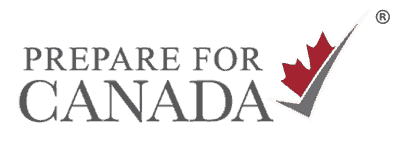
The Canadian construction industry and skilled trade companies are always on the lookout for workers. With many vacancies for construction jobs in Canada combined with a shortage of skilled trades workers, Canada is looking to newcomers to help fill this void. Currently, newcomers make up 16% of the construction workforce in Canada. Learn more about job requirements, credentials assessment, construction salaries, and free pre-arrival services to help you build your construction career.
Construction job requirements will vary based on the target occupation. For example, some trades and construction jobs in Canada are regulated in specific provinces while others are not. Currently, there are over 400 skilled trades in Canada. And about 20% of jobs are regulated. Jobs that are regulated require a license or certificate of qualification to practice to ensure the health and safety of all Canadians.
If your trade is regulated in the province or territory where you plan to settle, you may need to get a license from a regulatory body.
If you are a construction professional such as an architect, or an engineer, you must also meet professional licensing requirements. Or, you may work in a specific functional area such as Human Resources, Finance, or IT, and would like to make a career switch to the construction industry. In that case, it’s important to explore the licensing requirements of those professions.
Advertisement:
Now is a great time to join Canada’s construction industry. And, if you have the right skills and experience, you’ll find great jobs in cities across Canada.
Content:
- How to Immigrate to Canada as a Construction Professional in the Skilled Trades
- What to Expect When Pursuing a Construction Career in Canada
- Requirements for Working in Construction in Canada
- Skilled Trade and Construction Schools in Canada
- Construction and Skilled Trade Associations in Canada
- How Much Do Construction Workers Make in Canada?
- How Big is the Construction Industry in Canada?
- How to Work in Your Trade in Canada
- How to Find Your First Construction Job in Canada
How to Immigrate to Canada as a Construction Professional in the Skilled Trades
Before You Move to Canada to Pursue a Construction Career
For newcomers, it’s important to understand the what’s happening in the construction before moving to Canada. There are steps that you can take before you arrive to improve your chances of working in Canada’s construction industry:
- Learn about the construction industry in the local area where you will land or live in Canada
- Research your target occupation and how you can compete with local talent. Know where to access free, pre-arrival employment advice and services specific to the construction industry.
When researching Canada’s construction industry, consider these questions to guide you:
- Do Canadian construction employers value my skills, education, and work experience?
- What construction professions are in-demand and are there regional differences?
- Is my education equivalent to Canadian standards? Do I need to get my education assessed?
- Is my profession or skilled trade regulated or unregulated and how does this impact me?
- Will my professional licence (credential) be recognized?
- What wages can I expect to earn in the province or territory that I’m heading to?

What to Expect When Pursuing a Construction Career in Canada

Before you even arrive in Canada, you need to know the job requirements so that you’ll be in an advantageous position to land a job that matches your skills and experience. It’s also important to know where the jobs are because labour market conditions can vary across the country.
With over 400 skilled trades jobs and other licensed professions, it can be difficult to know where to begin. Pre-arrival services can help you find your way. BCCA-Integrating Newcomers (BCCA-IN) offers free pre-arrival services to people who would like to join Canada’s construction workforce. They know the construction industry and can help you to:
Advertisement:
- Build local connections
- Work with the right credential authorities
- Connect with construction associations and employers in different regions in Canada.
Employment Outlook for Skilled Trades and Construction Jobs in Canada
Canada is facing a labour shortage in the construction industry. This is largely due to the number of construction projects in progress, as well as a shrinking labour force. As Canada’s workforce ages, employers now need to replace employees who are retiring and will look to labour from around the world to meet the demand. And the industry can offer a diverse and rewarding construction career in Canada.
Immigration will help to meet the increasing labour needs. The construction industry is working to create greater equality and diversity among its workforce by recruiting groups such as women, Indigenous Peoples, and newcomers.
Demand for construction trades is likely to remain high. According to BuildForce Canada, the industry needs to recruit 309,000 new construction workers over the next decade (2021 – 2030), driven by the expected retirement of 259,100 workers (or 22% of the current workforce).
Many employers accept applications from experienced tradespeople from around the world. But the outlook for construction jobs varies depending on the province or territory, and the trades or professions that are in demand. Some provinces facing the greatest labour shortages include Ontario, British Columbia, Nova Scotia, and Alberta.
What Kinds of Construction Jobs are Available in Canada?
The construction industry provides high-paying jobs for tradespeople, licensed professionals, and business function professionals. With experience in the following areas, you can build a great career in Canada:
| SKILLED TRADES | LICENSED TECHNICAL PROFESSIONS | BUSINESS STRATEGIC OCCUPATIONS |
|---|---|---|
Tradesperson Labourer Carpenter Concrete Finisher Crane Operator Electrician Heavy Equipment Mechanic Pipefitter Welder… | Technician Technologist Accountant Architect Estimator Surveyor Engineer Project Manager… | Business Consultant HR IT Sales/Marketing Finance Logistics Supply Chain Operations… |
Requirements for Working in Construction in Canada
Internationally trained construction workers must meet the licensing requirements in Canada to practice (if applicable to the role). But there are many entry-level construction jobs that require little to no experience. If you are an experienced construction worker, you could qualify for higher-level roles, depending on the trade.
Construction companies will look for newcomers with the ability to write, read, listen, communicate, and speak English (or French if you plan to live in Quebec).
Language Training for Construction Jobs in Canada
You may have strong technical skills, but you may need to upgrade your communication skills. Strong skills in one or both of Canada’s official languages, English or French – are important for your future in Canada. Whether you choose to focus on learning or improving English or French will depend on which of the two languages most people speak in the area where you intend to live.
You may be eligible for Language Instruction for Newcomers to Canada (LINC) program. Otherwise, you can find free or affordable classes in English as a Second Language (ESL) or French as a Second Language (FSL) classes through school boards or settlement agencies.
There are even language courses to teach you professional terminologies, such as job-specific language training and Occupation Specific Language Training (OSLT) in Ontario. And, if you already speak one of Canada’s two official languages at a high level, learning the other one is a good option, as it may offer you better job opportunities.

Skilled Trade and Construction Schools in Canada
There are many trade and construction schools in Canada. And, continuing your education when you move to Canada can help you to advance your construction career. Most diploma and certificate programs are offered at the college level.
Below is a list of construction schools across Canada.
Top Schools for Construction Management
The University of British Columbia
Top Schools for Skilled Trades
Alberta
Southern Alberta Institute of Technology (SAIT)
Northern Alberta Institute of Technology (NAIT)
Red Deer Polytechnic
British Columbia
British Columbia Institute of Technology (BCIT)
Ontario
Conestoga College
Mohawk College
Fanshawe College
Humber College
George Brown
Seneca College
Durham College
Algonquin College
Canadore College
Sheridan College
Centennial College.
Construction and Skilled Trade Associations in Canada
Skilled trades and other construction professions are regulated by each province and territory by regulatory bodies. The role of these bodies is to:
- Set the licensing standards and requirements
- Assess workers’ qualifications
- Issue licenses when standards have been met.
While some skilled trades are regulated, not all trades require a license. To find out if your occupation is regulated in Canada, visit the Canadian Information Centre for International Credentials.
National Construction Associations in Canada
The following associations provide information about licensing, and certification and offer professional development, and networking opportunities.
Canadian Construction Association
Canadian Architectural Certification Board
Canadian Institute of Quantity Surveyors
Project Management Association of Canada
Canadian Council for Technicians and Technologists
Provincial and Territorial Construction and Trades Regulatory Bodies
Most trades are regulated by provincial or territorial agencies. For more information about certificates of qualification for specific trades, click on the link for the province or territory where you plan to settle.
| Provincial/Territory Regulatory Agencies |
|---|
| Alberta |
| British Columbia |
| Manitoba |
| New Brunswick |
| Newfoundland and Labrador |
| Northwest Territories |
| Nova Scotia |
| Nunavut |
| Ontario |
| Prince Edward Island |
| Saskatchewan |
| Yukon |
How Much Do Construction Workers Make in Canada?
There is a wide salary range for construction jobs in Canada. Your salary is based on your experience, specialized skills, trade, and location. It’s important to consider both the provincial and regional labour market conditions for your specific trade. Construction job salaries typically range from $15 to $35 per hour. The average hourly rate is $21 per hour. The average annual salary range for workers based on a 40-hour work week is $43,680. The highest annual salary tops out at about $72,800.
Note: Salary numbers are for construction labourer jobs. Construction professionals with specialized skills have the potential to make a high yearly salary.

Construction Salary and Wages in Canada
It’s important to research trades that are most in demand in Canada. It’s also good to know what skills, licenses, and certificates you require to practice your trade. You can browse jobs here to get an idea of the skills employers are seeking.
To get an idea of pay, here are the 2022 pay scales for different trades in Canada. The figures provided are based on 2022 national averages. Wages will vary based on the province and region.
| TRADE | LOW ($/hour) | MEDIAN ($/hour) | HIGH ($/hour) |
|---|---|---|---|
| Boilermaker | 30.46 | 44.14 | 49.06 |
| Carpenter | 19.00 | 30.00 | 40.51 |
| Crane Operator | 22.31 | 34.00 | 46.50 |
| Industrial Electrician | 25.64 | 37.00 | 50.00 |
| HVAC Mechanic | 18.00 | 30.66 | 46.05 |
| Industrial Mechanic and Millwright | 20.00 | 32.00 | 45.50 |
| Plumber | 18.00 | 31.00 | 42.64 |
| Sheet Metal Worker | 20.00 | 32.00 | 42.15 |
Best Provinces to Work in Construction Jobs
Available construction jobs in Canada are relative to the size of the population. So, you can expect to find more construction jobs where there are more people. For example, Ontario, Canada’s second largest province geographically represents about 37.5% of construction employment in Canada. British Columbia represents 16.7% of construction activity, while Alberta, represents 15% of construction activity. (Source: BuildForce Canada)
Before deciding where you want to settle in Canada, research where there is a high demand for your specific job that will allow you to build your construction career.
Click on Job Prospects links to learn about wages, job outlook, and requirements for construction jobs that are in demand in Canada.
| Job Title | National Job Market Outlook |
|---|---|
| Plumber | Job Prospects |
| Construction Craft Worker | Job Prospects |
| Carpenter | Job Prospects |
| Mechanic | Job Prospects |
| Pipefitter | Job Prospects |
| Electrician | Job Prospects |
| Boilermaker | Job Prospects |
| Welder | Job Prospects |
How Big is the Construction Industry in Canada?
Whether it’s building new hospitals, schools, skyscrapers, or new homes, there has never been a more exciting time to join Canada’s construction industry! According to the Canadian Construction Association, the industry employs more than 1.4 million people and about 7% of Canada’s workforce. It is one of the leading sources of employment in Canada. The industry has two primary sectors: residential and non-residential construction sector.
Residential Construction Sector

Work in the residential sector includes both new home building and home renovation. Employers in residential construction are usually:
- New home builders and renovation contractors hire tradespeople on staff.
- Trade contractors that specialize in a specific area such as plumbing contractors or heating, ventilation, and air-conditioning (HVAC) contractors.
There are many opportunities in residential construction across Canada. But some regions are more active than others. So, it’s vital to research job demand at the national, provincial, and local levels. BCCA-IN can help you connect with construction associations and employers across Canada.
Non-residential Construction Sector (institutional, industrial, commercial, and engineering)
Within the non-residential construction sector, there is also high demand. For example, there are large, resource-based construction projects underway across the country. The table below outlines examples of projects in several provinces:
| Alberta | British Columbia | New Brunswick | Ontario | Manitoba |
|---|---|---|---|---|
| Wind and gas-fired utilities | Liquified natural gas facilities and natural gas plans | Oil refinery (capital & maintenance) | Nuclear refurbishments, hydro, wind and solar utilities | Hydro development projects |
| Transmission lines | Hydro and wind utilities | Utilities – water treatment and dam replacement | Transmission lines | Transmission line |
Major Employers for Skilled Trade and Construction Jobs in Canada
While Canada has many large construction companies such as PCL and Aecon, according to the Canadian Construction Association, 70% of the industry is small (fewer than five employees) to medium-sized companies. With a growing industry, starting your construction career with a small company can allow you progression opportunities and higher earning potential as the company grows.
How to Work in Your Trade in Canada
Construction has many regulated trades and professions. BCCA-IN can help you determine if your job is regulated and connect you with the right credential authority to get your career off to a great start.
To meet labour shortages, Canada will rely on tradespeople with experience from other countries. If you have trade experience, you may need to have your work experience or training assessed to receive certification. Each province and territory have its own certification requirements.
With trade experience from another country, you can complete a Trade Equivalency Assessment. This assessment shows you:
- Past training
- Work experience
- Level of education
- Level of language ability.
And, based on your previous work experience you may be qualified to write the Certificate of Qualification exam. This exam tests your knowledge, competence, and ability to perform important tasks in your trade.
How to Find Your First Construction Job in Canada
The Canadian job market is competitive, so you will need to prepare to find a job. It’s important to research available construction jobs in Canada by province and region and develop a plan to find work.
There are many ways to search for jobs including:
- Broadening your search and including alternative careers.
- Seeking a mentor who could give you insight into Canada’s construction industry and introduce you to their network.
- Joining job-finding or networking clubs through immigrant-serving agencies.Attending construction job fairs and regularly checking online job boards.
Related Posts:
Job Searching in Canada | 5 Things to Know & Do
Use Settlement Agencies
Finding a job in Canada may be different than in your home country and you may need help with your job search. Most settlement agencies offer free services to help you:
- Find job vacancies
- Update your resume
- Write cover letters
- Prepare for interviews, and
- Understand what Canadian employers are looking for.
Find out more about the free services that settlement agencies offer to newcomers here.
Go on Informational Interviews with Construction Professionals
An informational interview is a brief (20–30-minute) meeting that you schedule with a person who is currently working in the construction industry. The purpose of an informational interview is to find out more about the construction industry in Canada, as opposed to trying to get a job. For example, you may want to learn more about trends, and regulatory, or technological changes that are affecting the field.
An informational interview with a contact from your network can be an excellent source of career information. In addition to getting information about the industry, you can benefit from their first-hand experiences working in the field in Canada.
Network to Find Construction Jobs
Networking is a vital activity to help you find job leads, gain professional advice, and expand your network. In Canada, many job vacancies are not advertised. Also known as the “hidden” job market, you can discover these jobs through networking with others. So, it’s helpful to connect and build relationships with others in your field who can help you discover these jobs. Good places to network include conferences, associations, and other settings.
LinkedIn is another vital tool for networking. Using LinkedIn, you can connect with former colleagues and employers, search for jobs, and get introductions to others. You can also join some relevant groups to learn more about the construction industry in Canada.
But remember, that you have to allow time to cultivate and grow the ties you establish through networking. Nothing will happen overnight and you need to be patient.
With a positive outlook for construction jobs in Canada, now is the time to check out your options. Interested in learning more about working in Canada? Check out our Finding a Job in Canada resource page. We can help you achieve your career goals in Canada.

